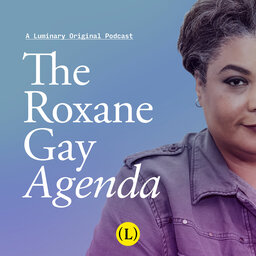And Then Some (w/ Sherrilyn Ifill)
Sherrilyn Ifill still believes in the future. The famed civil rights attorney reflects on her time with the NAACP Legal Defense Fund (LCD) fighting against systemic racism in the courts. And she also has thoughts about the legitimacy crisis of the Supreme Court.
Credits: Curtis Fox is the producer. Our researcher is Yessenia Moreno. Production help from Kaitlyn Adams and Meg Pillow. Theme music by Taka Yasuzawa and Alex Sugiura.
 The Roxane Gay Agenda
The Roxane Gay Agenda

